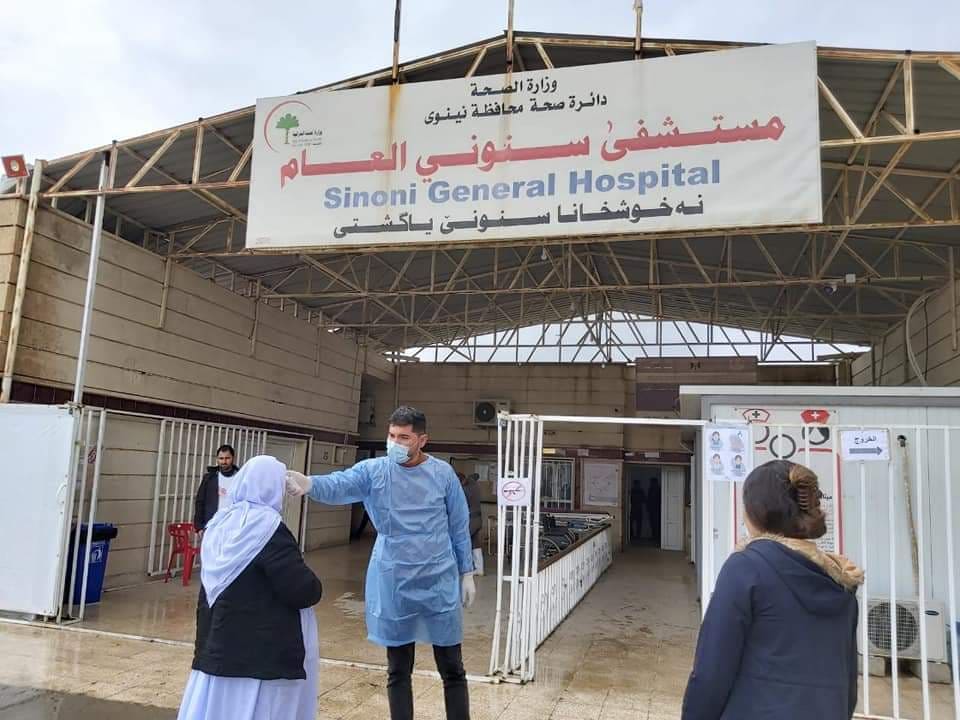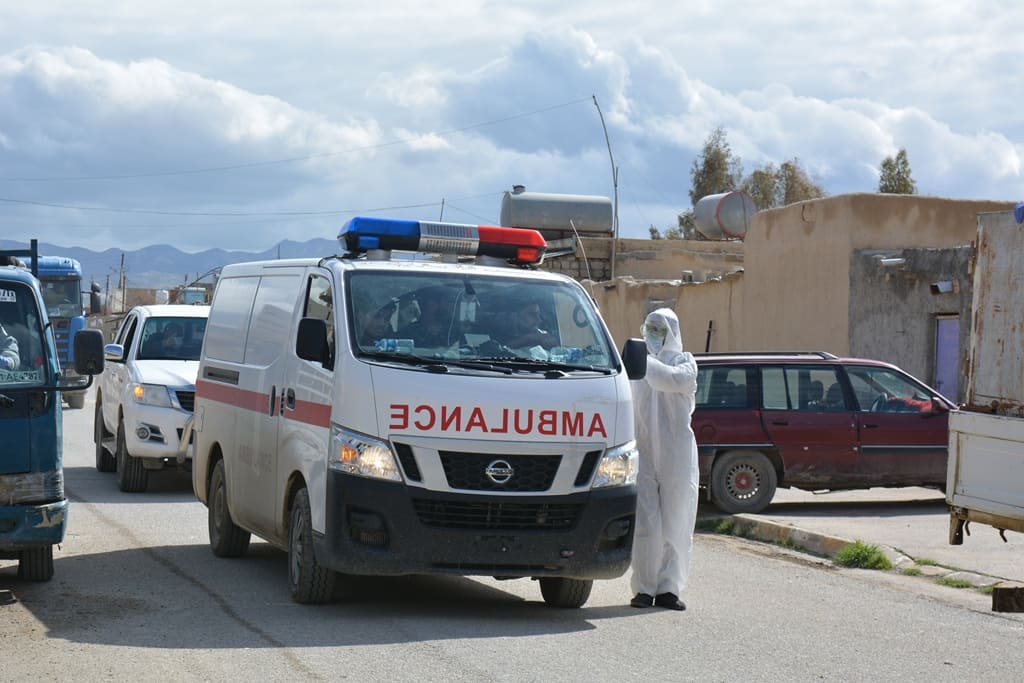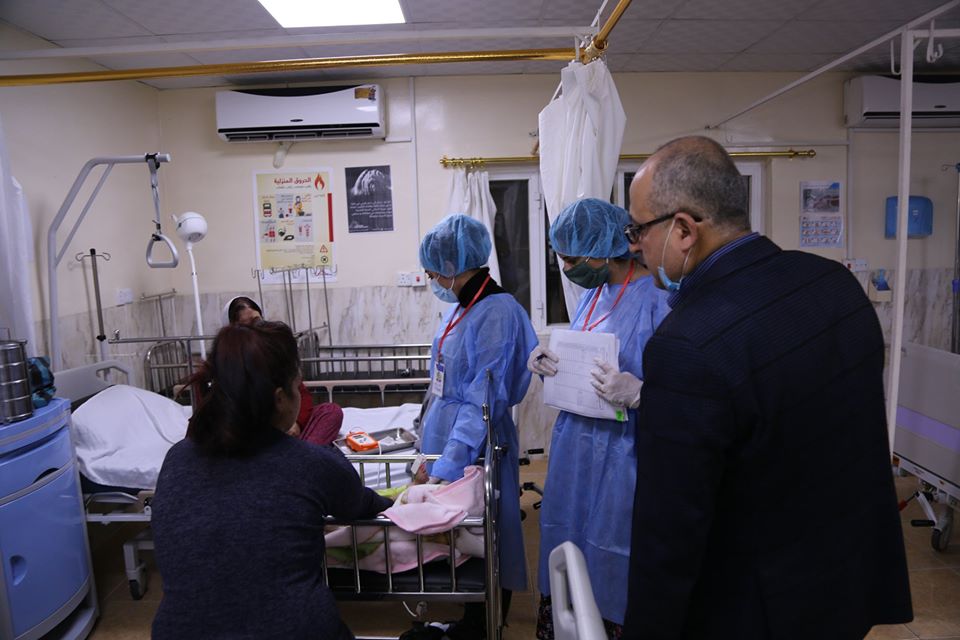Residents of the Iraqi town of Sinjar desperately wish that the coronavirus outbreak will not reach their district because in that case they have to fight it with bare hands. With the already destroyed health infrastructure, patients need to visit other neighboring areas in the country to receive medical treatment.
Sinjar district, the hometown of the Ezidis, possess a vulnerable health infrastructure and still suffers from the aftermath of the Islamic State group (IS) war. The spread of the coronavirus in Iraq poses a serious challenge to the district, which has a limited health capacity and yet to receive adequate medical equipment to confront the virus.
Residents said they feel in this challenging situation as the Nineveh local administration and the federal government have not provided the district with enough medical aid.
“God blessed the residents of Sinjar that still no cases have been recorded,” Khishfe Nadir, 34, said. She thinks that if the virus had spread in the town, then they would not have been able to contain it.
God blessed the residents of Sinjar that still no cases have been recorded
Khishfe, who lives in central Sinjar, said she tried to purchase protective masks and gloves as well as cleaning supplies with the announcement of strict measures due to pandemic. However, prices has increased as the market is running out of such materials, “the prices look sky high, meanwhile neither relevant authorities nor other organizations have come to support the district.”
She added that the only option they have is to stay at home, as the authorities are probably unable to overcome the virus with such a weak health facilities.
The novel coronavirus has reached Iraq since February. Since then, the federal and regional governments with the local administrations have started supplying medical aid to different areas in the country, however least supplies have been sent to Sinjar.

Sinjar, an Ezidi woman is going through a body temperature check in front of Sinoni General Hospital, March 2020. Photo: Crisis Cell of Sinjar
Sinjar hospital lacked necessary surgical and child birth units until February, when both departments were reopened. The district had only three general practitioners and only an ambulance for a population of 30 thousands.
Sa’ed Qassem, a resident of Sinjar, earlier told KirkukNow, “we have to visit the cities of Iraqi Kurdistan for the primary checkups, I have taken my daughter to Duhok twice, each time it cost me 500 thousand Iraqi Dinars (IQD) (USD 400).”
The lack of medical care services in the district has forced its people to visit different areas in the Nineveh and the Kurdistan Region for treatment.
Shahab Sabah, deputy director of Sinjar general Hospital, stated, “we have prepared a particular section for coronavirus patients, but we are unable to treat them. We transfer them to the coronavirus hospital in Mosul.”
We transfer them to the coronavirus hospital in Mosul
“We only have two ventilators, there is no pulmonologists-respiratory specialists- and cardiologists,” Sabah said, “what is pleasing to them is the compliance of the people with the health instructions in hope that the pandemic will reach the town.”
Residents of Sinjar are predominantly Ezidis who faced a massacre at the hands of the Islamic State, who also abducted six thousands Ezidi women and children. Still, the fate of half of them remain unknown.
Sinjar, which is located 120 km western Mosul, is a disputed district between Baghdad and Erbil. It is now under the jurisdiction of the federal government.
“Thanks God, here no cases have been confirmed. We refer that to the commitment of residents and the role of the Crisis Cell,” Jamil Hamo, a resident of Sinjar, said.
Hamo says that the situation is tough, the protective equipment is scarce and expensive; he has already gone to local pharmacies to get masks but managed to buy gloves, whose price has increased from two thousand to five thousands.
Sinjar General Hospital and other health clinics were destroyed during the rule of the Islamic State from 2014 to 2015.
Majority of the Ezidis have not yet returned home and still live in displacement due to the poor basic services, slow reconstruction, and lack of security. The Ezidi IDPs cover 30 percent of 787 thousand IDPs living in the Kurdistan Region, according to the Joint Crisis Center at the Ministry of Interior of the Kurdistan Regional Government (KRG).
Khdui Chuki, commissioner of Snoni Sub-district in Sinjar, said that Sinjar lacks medical supplies, including gloves and gloves. “God forbids, but if someone contracts the virus, then we will have to transfer the case to Mosul as there is not a special unit to treat such cases,” he said.
He is concerned about how Sinjar was neglected by the Nineveh administration under the current situation
Chuki also said that he is concerned about how Sinjar was neglected by the Nineveh administration under the current situation, adding that what his local administration has done so far was spreading disinfections in the public places and awareness-raising.

Sinjar, paramedic talks to an ambulance driver, March 2020. Photo: Ibrahim Ezidi
Five out of the six cases recorded in Nineveh have recovered so far; none of them comes from Sinjar.
Nineveh used to host six health offices and 16 hospitals, collectively having 4600 beds, but the Islamic State advance to the province left the health infrastructure in ruins, reducing the beds to 1700 for a population of one million and 700 thousands, according to the statistics of the Nineveh health directorate.
Nineveh officials namely the governor have recently visited Sinjar, where they promised to provide further medical supplies, a statement of Nineveh administration said.
Meanwhile, the Iraqi Ministry of Health, also in a statement, urged the need for speeding up the construction of a 100-bed hospital in Sinjar, an initiative which the French Embassy in Baghdad laid its milestone in February.





